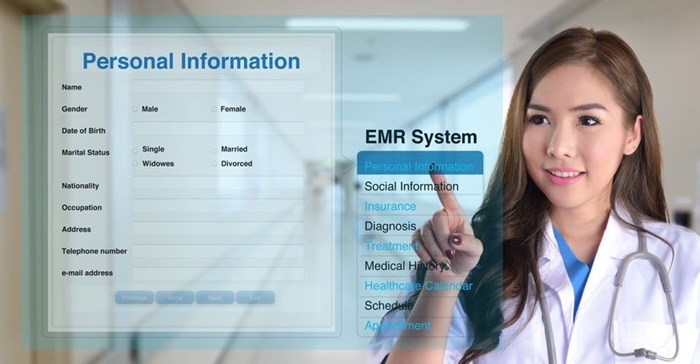Covid-19 has shown what governments and public and private healthcare sectors can accomplish very quickly using technology. However, to solve the problems in healthcare in South Africa, while technology is an enabler, the key is recognising the needs of our market.

Source: © pandpstock001
123rfThe recently released sixth annual Philips Future Healthcare Index has come at a time when it is necessary to leverage technology to ensure that future healthcare systems met the needs of its customers, their patients.
Launching the index Philips hosted a webinar with Wayne Zwiers, a fintech entrepreneur and futurist and Dr Sharika Choona, an award-winning independent public health practitioner, bold activist, renowned public speaker, and Operation Smile Ambassador for South Africa as well Philips South Africa MD, Romulen Pillay.
A primary healthcare market
Zwiers maintains that while technology can, and has, solved healthcare issues, we must ask ourselves what technology is the best for this country and the continent.
“To understand this, first we need to understand where our market sits then we can solve healthcare issues for the country to provide an as efficient as possible service for this market,” he says.
“In South Africa we are serving a primary healthcare need, and this is where digital technology is needed,” agrees Pillay.
Zwiers adds that if we can plug technology in then we can serve more people. “Then can move to a proactive healthcare model suitable for our market.”
Practical digitalisation
He cites the example of sharing data between patients and providers in remote areas. “What is the best technology to enable this?” he asks.
Choona agrees with him saying we need to make digitalisation practical for healthcare.
“To have digital healthcare on the continent, the infrastructure needs to be in place. If not, then we can pretty much forget about it,” she says.
“AI is a buzz word currently and it does help but is AI the best technology to be use in remote areas of the continent?” questions Zwiers.
He says that while solutions such as AI are great, but how do we enable them. “The industry highly regulated so how can we be more flexible in our response to automate and share information to get to the point where the customer is first.”
“Understanding the customers and their challenges is the key to solving the problems in healthcare. We need to be beware of technology for technology’s sake,” he says.
Pillay adds to this saying that the adoption and investment rates into telehealth and AI are very slow in Africa.
Public health not ready for change
Choona points out that the factors such as bureaucratic culture of healthcare, the lack of modernisation of old systems and institutional culture are limiting the adaption of technology by the public health sector.
“The civil and private sector can roll out digital solutions, but the public sector has lagged behind. The reality on the ground is that the quality of care at National Health pilot sites are not good,” she says.
She adds that while technology can drive the quality of care and monitor the system and building efficiencies, the reality is that public sectors still need to address these.
“However, if the public and private sectors cooperate, quality will happen along the way,” says Choona.
“Currently the World Health Organisation (WHO) is developing national levels of best practice in a number of countries including Nepal, and Mexico by identifying the gaps in their healthcare and then starting to tie interventions together to overcome these.”
Pockets of excellence
Pockets of excellence do exist in this country," says Zwiers, citing Quadcare in townships as an example. “There are technology-enabled smaller clinics that bigger clinics can learn from them."
He adds that we need to remember that patients are familiar and advanced with technology. "Patients can, for example, fill in forms. This is a function that should be digital and automated. It will also save on healthcare resources, freeing nurses up to do other tasks.
“It comes back to customer centricity and what patients need. If we can understand the challenges on the groun and then get the basics right, we can build to beyond there,” he says.
The Philips Future Healthcare Index can be read here





































